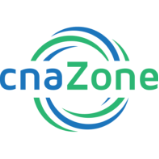Course Description
The Aging Process
Course Summary
As a person ages, there are many physiological changes that occur. These changes start when the person reaches the teen years, and involve all body organs. Often the first body organ affected is the musculoskeletal system. The sensory organs of the eyes and ears tend to change mid-life. As a person becomes elderly many of the internal body organs decline and begin to fail. There are risks associated with aging related to falling and other complicating factors. As a person ages, the body’s reserves are less. This is part of normal aging. At the same time, aging doesn’t necessarily refer to an old person, to someone who is unable to participate in strenuous physical activity nor to someone who can’t tolerate environmental stressors. Body changes are a normal part of aging, and there are numerous expert studies on how these changes affect various individuals based on their individual health states. A case study of the elderly involved in endurance activities is discussed.
Course Objectives
- Identify body system changes caused by the aging process
- Explain health issues that affect the elderly
- Describe medication issues that are common to the elderly
Course Syllabus
- The Aging Population
- The Aging Process
- The Causes of Aging
- Body Systems and Aging
- Sensory Changes
- Aging and Disease
- Acute and Chronic Diseases
- Health Issues of the Elderly
- Case Study - Elderly and Endurance
Target Audience:
CNA
Credits:
1.0



